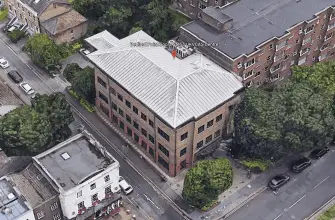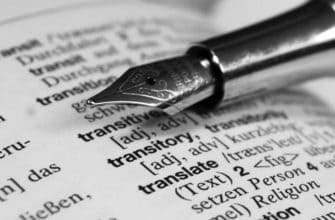Top 10 things you should do straight away
When your partner first arrives in the UK on a settlement visa, it is the responsibility of the UK sponsor to organise and guide their partner with all the practicalities of getting set up for life in the UK.
Arriving in the UK (Immigration control)
Upon arrival in the UK at an international airport you will have to go through Immigration and Customs Control (UK Border Force).
Here’s what you need to know:
- Usually, there are 2 queues – one queue is for EEA and Swiss nationals and the other for everyone else. Make sure you join the correct queue.
- Here, your passport and visa/entry clearance will be checked. You should carry your passport and visa in your hand luggage.
- This process can take at least an hour.
- After this, you can collect your baggage. Check the screens for your flight number and where your flight departed from to know where to collect your baggage from.
- If any item of baggage has not arrived you will need to speak to an airline representative and fill out a lost baggage form.
Customs
Once you have collected all your baggage the next step is to pass through Customs Control.
- The Green channel is if you have nothing to declare
- The Red channel is if you have goods to declare
- The Blue channel is if you have arrived from an airport within the EU
A Customs Officer can check your baggage regardless of which channel you pass through.
You must declare the equivalent of 10,000 Euros or more in any currency to Customs Control if you are travelling to the UK from outside the EU.
If you fail to declare this or provide incorrect information, a large fine can be imposed.
It’s always best to check in your home country, with the British Embassy or High Commission , what you can and cannot bring to the UK with you.
Top 10 things you should do straight away
When you received your passport back with your travel vignette, you will have been given a decision letter which tells you exactly which Post Office to collect your BRP card from. When you go to collect the BRP card take the letter with you.
This must be done within 10 days of arriving in the UK or before your vignette expires, whichever is later.
Once you are in the UK, you can apply for a National Insurance number. In order to get a National Insurance number you must have the right to work or study in the UK. You may be asked to go to an interview with Jobcentre Plus who will want to know why you need a National Insurance number and what your current circumstances are. If you tell your employer that you have applied for a National Insurance number you can start work before it arrives and give it to them when you have it.
https://www.gov.uk/apply-national-insurance-number
Telephone: 0800 141 2075
https://www.gov.uk/council-tax
All practices will have registration forms available which you must submit in order to formally register with them as an NHS patient. When you have completed and returned the form, your new practice will write to you to confirm your registration as a patient with that practice. When you register, you may be asked for proof of identity by some GP practices. However, GP practices should not refuse your registration if you don’t have proof of address or personal identification to hand. It is not considered a reasonable ground to refuse registration whether lawfully in the UK or not.
https://www.nhs.uk/nhs-services/gps/how-to-register-with-a-gp-surgery/
Once you have received some mail addressed to you, you should be able to use these letters as proof of address to open a UK bank account.
Each bank will accept different things as proof of address so be prepared to shop around. Banks usually insist on utility bills, Council Tax bill letter, GP letters or DWP letters regarding your NI number as an example.
Santander has a new bank account specifically for people who are new to the UK with no credit history.
https://www.santander.co.uk/personal/current-accounts/basic-current-account
Your partner could add you to their existing account or open an extra joint account.
With a joint account:
- You and your partner will both get a debit card and can request a cheque book, if it is available with the main account.
- Each person can make withdrawals, write cheques, apply for an overdraft or use cash machines without needing the approval of the other.
- Both people named on the account are individually and jointly responsible for any debts that might occur on the joint account.
A provisional driving licence is a great way for you to have further photo ID and proof of address. You can apply online or by post.
It costs £34 to apply online. You can pay by MasterCard, Visa, Electron, Maestro or Delta debit or credit card. You must send in an identity document with your application, (biometric residence permit (BRP) and a recent photograph.
https://www.gov.uk/apply-first-provisional-driving-licence
Alternatively, you can apply by post. You must fill in form D1 which is available to download online or at certain Post Office branches. It will cost £43 to apply by post. You can make your cheque or postal order payable to DVLA (don’t send cash).
You will also need to include your BRP and a photograph. You will get your driving licence and identity documents sent back to you separately. Identity documents are returned by second class post. Include a stamped, self-addressed, special delivery envelope, or signed for envelope with your application if you want to track when your documents are posted. Contact Royal Mail if you don’t get your documents back within 2 weeks of receiving your licence.
Send your application and payment to: DVLA, Swansea, SA99 1AD
Top Tip!
Keep your official mail and utility bills, it doesn’t matter whether your mail is in joint names or single names, as you will need official letters and bills for the next stage of the visa process FLR(M). This is to show that you’ve been living together since your spouse arrived up until their next application.
If you were already married before you arrived in the UK, you will apply for the next visa after 30 months of being in the UK OR 28 days before your BRP card expires.
If you arrived on a fiancé visa, you will have 6 months in which to marry and extend the visa to FLR(M).










I am a British citizen and last October applied to renewal my wife’s visa after 2 and half years of residence. Have provided all documents but 5 months later have not heard from the H.O
We have two children, 4 and 6 years old who have been diagnosed autistics.
There are no numbers to call unless you pay with a credit card to get a response from the HO.
Any ideas what I can do please!
Thanks
What one must do, she may loose her employment as she can not prove her entitlement to stay in UK.
Hi there! I understand how frustrating and concerning this situation must be for you, especially given that you have two young children with special needs. You want to ensure that your family can stay together and continue to provide a stable environment for your children. I’m not an immigration expert, but I can try to provide some guidance on what you might be able to do next.
First, I want to acknowledge that the visa renewal process can sometimes be slow and complex. However, it’s important not to lose hope, as there are steps you can take to help move things along.
1. Make sure your application is complete: Double-check that you’ve provided all the necessary documents and information for your wife’s visa renewal application. Missing or incomplete information could cause delays in processing.
2. Follow up with the Home Office: While it’s true that there’s no direct line to call the Home Office without paying a fee, you can still try reaching out in other ways. You can submit an online inquiry via the Home Office’s contact form (https://www.gov.uk/contact-ukvi-inside-outside-uk). You might also consider writing a letter explaining your situation and requesting an update on your wife’s application status. Be sure to include your case reference number and any relevant personal details in the letter.
3. Seek professional advice: It might be a good idea to consult with an immigration solicitor or adviser who can provide expert guidance on your case. They may be able to identify any issues with your application and suggest additional steps to help expedite the process.
4. Prepare supporting evidence: To help alleviate concerns about your wife’s employment situation, gather any relevant documentation that demonstrates her entitlement to work in the UK while her visa renewal is pending. This could include her original visa, proof of residence, and any correspondence from the Home Office regarding her application.
5. Communicate with your wife’s employer: Keep your wife’s employer informed about the situation and provide any necessary documentation to reassure them that her visa renewal is in progress. Being proactive in this regard can help maintain a positive relationship with her employer, which might be crucial if her employment status becomes uncertain.
6. Contact your local MP: If you’re still not getting any response from the Home Office, consider reaching out to your local Member of Parliament (MP) for assistance. They may be able to make inquiries on your behalf and help bring attention to your case.
7. Stay patient and persistent
Respected Sir,
Hope you are doing well. I arrived here in the UK as a dependent and started working (NHS) but my visa is going to expire. Moreover, my employer says i can’t give CoS below Band 5. I am completely in a panic situation at the moment. What do you suggest in this regard?
Thank you.
Dear Mira,
Thank you for your message. I understand that this is a stressful situation for you, and I’ll do my best to provide some guidance.
There are a few options you might want to consider:
Please remember that you should not overstay your current visa. Overstaying can affect your immigration status and the ability to return to the UK in the future. I would strongly advise you to speak to an immigration advisor or solicitor who can provide guidance tailored to your specific circumstances.
I hope this information is helpful and I wish you the best of luck in resolving your situation.
Best Regards,
Josh